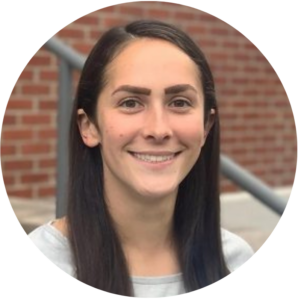| Spots for the 2025 – 2026 cohort have been filled.
If you are a junior, we encourage you to apply next fall during the last week of August/first week of September due to the competitive nature of these positions. |
APPLICATION CLOSED |
Who We Are
The overarching mission of the School Mental Health Assessment, Research, and Training (SMART) Center is to promote high-quality, culturally-responsive programs, practices, and policies to meet the full range of social, emotional, and behavioral (SEB) needs of students in both general and special education contexts. The SMART Center aims to accomplish this mission by using innovative and practical research methods to:
- Develop contextually-appropriate, low-burden programs that prevent or ameliorate SEB problems;
- Develop strategies for communities, districts, and schools to increase the use of effective SEB programs, practices, and policies;
- Support indigenous providers such as teachers and school-based mental health providers in their roles; and
- Enhance the interconnections across school, home, and community contexts.
The Center represents a transdisciplinary collaboration between faculty in the College of Education (CoE), the School of Medicine (SoM; Department of Psychiatry and Behavioral Sciences), and the School of Social Work at the University of Washington. Through this collaboration, SMART facilitates more equitable, effective, and integrated approaches to research and technical assistance surrounding the design and implementation of evidence-based SEB interventions.
Undergraduate 499 students will have exposure to multiple SMART Center projects and take on many of the same roles and responsibilities as Research Assistants. Under the direction of the 499 Program Director, students will be paired with a Research Coordinator mentor who will serve as their Lead Task Supervisor and explore the project-specific, research, and professional development interests of the 499 Students and assign tasks as needed. Students will have an opportunity to be part of a 499 cohort and attend weekly meetings where guest speakers discuss SMART Center projects, provide research-related trainings (i.e. qualitative interview training, Qualtrics, coding), and discuss relevant research literature and methodologies. Additional opportunities might include: shadowing field staff, providing support at SMART Center events, trainings, expert summits, and attending project team meetings.
499 Students will assist Research Staff with tasks as needed. This may include, but is not limited to:
- Transcription of youth, school clinician, and teacher qualitative interviews
- Manuscript preparation (i.e. literature searches, reference reformatting, etc)
- Data collection, entry, and cleaning
- Calculate descriptive statistics
- Reformatting and collation of project, field, and training materials
- Support staff during meetings, events, and trainings
| Official PSYCH 499 Course Posting is no longer available. | Official Posting Unavailable |
Learning Benefits
- Develop new skills (e.g., qualitative coding, Excel formulas, calculate descriptive statistics, draft brief reports, etc.) through completing project tasks and skill practice assignments
- Develop general research skills that are transferable to other fields
- Exposure to universal SEB interventions and implementation science (e.g., why programs don’t produce intended student outcomes, how to increase use of interventions, how to improve the delivery quality of interventions)
- Develop close working relationships with Director, Managers, Task Supervisors, and other staff members
- Discuss research topics in weekly seminars as a 499 Program cohort
- Apply coursework to real-time research
- Summarize and present research topics and study results
- Craft research questions and create poster for the annual Undergraduate Research Symposium
Many previous 499 Students have used this research course as an opportunity to learn about and understand the work that goes into conducting research before applying to graduate school.
Projects of Interest
499 Students will have the opportunity to work on one of three teams which are led by researchers across a variety of disciplines (e.g., clinical psychology, educational psychology, family and human development, special education). Read more about the teams and their projects below.
——————————————————————————————————————
ASPIRE
Autism Services and Practices Implementation Research in Education
The ASPIRE Pod, led by Dr. Jill Locke, focuses on autism in the classroom, and many of their projects seek to better understand how we can support schools and enhance care for autistic students. They are looking for 499 Students to support their work in autism and implementation science research across multiple school-based studies.
Helping Educational Leaders Mobilize Evidence (HELM) |
The purpose of this project is to support school leaders who are implementing Positive Behavior Interventions and Supports (PBIS) in elementary schools as well as improve implementation leadership and climate. HELM is not autism specific (it works directly with principals/administrators, not students).
A 499 Student will have the opportunity to work in data entry and participant tracking. |
|
School-based Paraeducator Education for Engagement at Recess (SPEER) |
The purpose of this project is to implement a recess-based intervention to boost peer engagement for elementary school (K-5) students. SPEER is primarily for autistic students, but also invites non-autistic students in the second wave of recruitment.
A 499 Student will have opportunities to work directly with elementary school students (administering friendship surveys), participate in in-person data collection (recess observations), gain experience in data entry (REDCap experience), and involvement in implementation work (shadow coaching sessions). |
——————————————————————————————————————
DREAMI
Designing, Real-world Effective [and Equitable] Approaches to Multilevel Implementation
The DREAMI Pod, led by Dr. Aaron Lyon, is a robust federally funded research program devoted to the development of usable and effective approaches to improving the accessibility, effectiveness, and equity of social, emotional, and behavioral interventions delivered in K-12 (primarily public) school settings.
Public Health Seattle King County (PHSKC) |
UW SMART provides evaluation, training, and consultation to Public Health Seattle King County to continually improve the delivery of school-based mental health supports in King County’s 50+ school-based health centers (SBHC). The goal is to use SBHCs to assure students can easily access effective, efficient mental health services in a multi-tiered system.
While data collection is still ongoing, a 499 Student may have the opportunity to code. |
|
Research Institute for Implementation Science in Education (RIISE) |
The purpose of the RIISE methods training grant is to increase the number of education scholars with expertise in conceptualizing, designing, and executing implementation research studies. This is done through providing training (e.g., annual summer training institute in Seattle, bimonthly webinars) and mentorship to increase human intellectual capital devoted to implementation research study design in education and build a network of implementation scientists.
This project is preparing to submit its final report to their funder – 499 Students have the opportunity to work directly with data (e.g., cleaning, descriptive statistics, identifying trends, creating tables and charts) as well as interpret data and practice scientific writing. |
|
Usability of Social-emotional and Behavioral Interventions: Links to Implementation and Translation to Youth Outcomes (USABILITY) |
The aim of this project is to evaluate how easy (or difficult) it is to use common school-based social-emotional learning (SEL) programs. We aim to identify unique and common usability issues as well as explore the links between program usability, implementation outcomes in schools, and student outcomes of these programs.
499 Students can support coding teacher and student user-testing sessions for usability issues, evaluating eligibility of potential participants, and participant tracking. |
——————————————————————————————————————
TAC
Training and Technical Assistance Core
TACore, led by Dr. Larissa Gaias and Kelcey Schmitz, helps bridge the research-to-practice gap by supporting student-serving organizations and professionals to develop, deliver, and evaluate effective school mental policies and programs across multiple tiers of school and community support. TAC provides a range of services including training, technical assistance, and program evaluation. A 499 Student would likely work on the projects below and support TAC through literature review, transcription, website development, and program evaluation activities.
Washington Association of Educational Service Districts (AESD) Behavioral Health Student Assistance Program (BH-SAP) |
This program aims to expand availability of school-based behavioral health services statewide by increasing staffing capacity within a Multi-Tiered System of Support (MTSS) framework. TAC primarily supports this project through program evaluation efforts including overseeing collection of student, school, and district outcome data, analyzing data, and producing reports to inform continuous improvement. | |
The Workforce for Student Well-being (WSW) Initiative |
This initiative is dedicated to empowering the next generation of school social workers to address the mental health needs of K-12 students in high-need public and tribal schools. Through scholarships, advanced training, and a supportive community of practice, WSW equips professionals with the skills to foster social-emotional learning and provide critical mental health services. | |
Leveraging a Research-Practice-Policy Partnership to Enhance State-Level Policy Makers’ Research Use Regarding School Mental Health |
This study will establish a research-practice-policy partnership comprised of researchers, education policy advocates, district and school representatives, and state policymakers, to 1) understand the type of evidence that policymakers perceive is needed to invest in comprehensive school mental health (SMH) systems, 2) generate and synthesize evidence aligned with these needs, and 3) examine how this evidence is used to determine SMH policies and resources. We will employ a Participatory Action Research design, engaging in a triangulation mixed methods approach across all study phases. Our study will produce novel findings regarding how stakeholders across roles and levels work together to improve the conditions for political action. |
Minimum Requirements
- Junior or Senior standing
- STRONGLY ENCOURAGED: Completed or currently enrolled in PSYCH 209 (Fundamentals of Psychological Research)
- Minimum commitment of two consecutive quarters (Fall and Winter)
- Register for 2 or 3 credits each quarter (equivalent to 6 or 9 hours work each week)
- Commit to in-person work at our Sand Point office (potential for hybrid model given schedule)
- Begin work the week of September 29, 2025
- Complete quarterly evaluations (self, Task Supervisors, 499 Program)
- Attend a weekly 499 seminar
- Interest in addressing mental health in schools for youth
- Previous experience working with youth or in schools is helpful, but not required
- Willingness and desire to learn!
Please note the following:
- We brought on several students for Fall 2025
- We only accept students who are interested in receiving course credit for PSYCH 499 (Undergraduate Research)
- Applicants were not contacted until the second week of September
If you have questions, please contact Taylor Ullrich (tullrich@uw.edu).
Leadership & Staff
 |
Aaron Lyon, PhDFaculty Advisor, 499 Program |
|
 |
Jodie Buntain-Ricklefs, MSW, MPHDirector, 499 Program |
|
 |
Vaughan Collins, MSWManager, 499 Program |
|
 |
Taylor Ullrich, MSManager, 499 Program |
|
 |
Aislyn Gordon, BATask Supervisor, 499 Program |
|
 |
Casey Chandler, BAPod Lead, 499 Program |
|
 |
Bethlehem Kebede, BSTask Supervisor, 499 Program |
|
 |
Jennifer Cohen, MNPLTask Supervisor, 499 Program |
|
 |
Marissa Thirion, BAPod Lead, 499 Program |
|
 |
Kemmerly Chipongian, BATask Supervisor, 499 Program |
|
 |
Priyanka Ghosh ChoudhuriTask Supervisor, 499 Program |